BEFORE THE BIG BANG
ALSO BY BRIAN CLEGG
Upgrade Me
The God Effect
A Brief History of Infinity
Light Years
BEFORE
THE BIG BANG
THE PREHISTORY OF OUR UNIVERSE
BRIAN CLEGG
ST. MARTINS PRESS  NEW YORK
NEW YORK
BEFORE THE BIG BANG . Copyright 2009 by Brian Clegg. All rights reserved. Printed in the United States of America. For information, address St. Martins Press, 175 Fifth Avenue, New York, N.Y. 10010.
www.stmartins.com
Book design by Gretchen Achilles
Library of Congress Cataloging-in-Publication Data
Clegg, Brian.
Before the big bang : the prehistory of our universe / Brian Clegg.1st ed.
p. cm.
Includes bibliographical references.
ISBN-13: 978-0-312-38547-7
ISBN-10: 0-312-38547-1
1. Cosmology. 2. Big bang theory. I. Title.
QB981.C627 2009
First Edition: August 2009
10 9 8 7 6 5 4 3 2 1
DEDICATED TO THE CENTER OF MY UNIVERSE
GILLIAN, CHELSEA, AND REBECCA
CONTENTS
ACKNOWLEDGMENTS
Thanks to the many people who have provided information including Dr. Marcus Chown, Professor Gnter Nimtz, the librarians of Swindon Central Library and the British Library, the Mullard Radio Astronomy Laboratory at the University of Cambridge, and the organizers of the Andrew Chamblin Memorial Lecture.
As always, this book would not have been possible without the help and support of my editor, Michael Homler, and my agent, Peter Cox.
BEFORE THE BIG BANG
1.
BIG BANG PRIMER
The beginning of things must needs lie in obscurity, beyond the bounds
of proof, though within those of conjecture or of analogical inference.
ASA GRAY (181088),
Darwin on the Origin of Species (The Atlantic Monthly, July 1860)
W elcome to the universe.
The universe is an awesome concept, one that belies the apparent simplicity of the term. Its everything, the whole of whats out there, the sum total of existence. We are part of that whole, yet the vast majority of the time we ignore everything but our own tiny corner of it, the infinitesimal speck that is our planet.
Since intelligent reasoning began, human beings have wondered about what the universe is and from where it came. As we see later, all kinds of possibilities were considered, but it wasnt until the twentieth century that our current widely accepted description of the beginnings of the universethe Big Bangwas first formulated.
The scientific curiosity that makes us wonder about the universe and where it came from seems to be a natural human trait, although it is often suppressed by peer pressure. All children have a sense of wonder when looking at the world around us. They want to know why and how and what, sometimes asking these questions so frequently that adults are driven to distraction. Sadly its not cool to be interested in science in your teens, so for many that fascination in whats out there gets pushed to one side. But its still there, waiting to be uncovered.
Theres a good reason for this curiosity. As I describe in my book Upgrade Me, it was our ancestors ability to see beyond the present, to ask, What if? to realize that one day they would die, that made them push far beyond their natural evolved capabilities. Our curiosity is part of that ability to look beyond the present moment, and it carries good survival benefits. If we hear a noise at night and ask, Why did that happen? What caused that noise? we are more likely to spot a threat before it becomes dangerous. We have an urge to look for causes. We dont, as do many animals, take the attitude that things just happen; we know that things have causes and seek them out. This urge to discover causality has some interesting consequences when we ask what came before the Big Bang.
If, as some theories suggest, time started along with space at the Big Bang, then the search for a cause is misleading: in this case there isnt a before in which the cause could have taken place. Unless you can take your reasoning outside time and space, as is often done in theological solutions to the question, we have a situation without cause. This is a perfectly possible occurrence when dealing with something as extreme as the origin of the universe, but one with which our causality-seeking brains really cant cope.
The Big Bang is the current, most widely accepted explanation for the origin of the universe, although it must be stressed that it is a best guess, not a proven fact. Inspired by the idea that the universe was expanding ( (although he didnt call it that). If the universe is getting bigger, as he believed it was, then Lematre could imagine tracing it back in time, watching it get smaller and smaller until everything was squashed together at the very beginning. This original seed of a universe was originally referred to as a primeval superatom or a cosmic egg.
When I first heard of the Big Bang concept I was dubious about it. In my teens I much preferred the Steady State theory of one of my scientific heroes, Fred Hoyle ( ). I was highly disappointed when Steady State was discarded. It felt like a favorite sports team had just lost the championship. It was all very well to imagine everything coming from this compact form, but two problems nagged at me. Why should that initial supercompact universe begin to expand, when all the matter in the universe was pulled together by gravity? And how could you compress everything there was in the universethat vast quantity of matterinto such a tiny speck?
Initially Lematre had a poor reception for his ideas. This could be put down to two personal characteristics: he was Belgian and he was a Catholic priest. It was undoubtedly prejudice, but most people thought nothing more impressive than French fries and good chocolate ever came out of Belgium, and Lematres membership of the priesthood didnt stand him in good stead in an increasingly atheistic or agnostic scientific community, and one that was particularly suspicious of the Catholic Churchs record on the suppression of scientific and cosmological theories. This was, after all, the same church that had squashed Galileos exploration of the notion that the Earth moved around the Sun. But Lematres cosmic egg was disliked for other reasons.
Lematre had trained at Cambridge University under the great astronomer Arthur Eddington, and although Eddington was very supportive of Lematres ideas on the expansion of the universe, he was less happy about the primeval superatom. It seemed to imply that everything originated in a single point, which would involve a massive change in the nature of the universe. This ran counter to his understanding of physics. Others pointed out that Lematres picture of the birth of the universe was suspiciously close to the Bibles idea of creation as described in Genesis. Although science should have no problem with religion, rightly or wrongly scientists are always concerned if a theory seems to be inspired by a religious concept.
Fred Hoyle, the champion of the Big Bangs main early rival the Steady State theory, would be the one to give the Big Bang model its name. Until then, what we now call the Big Bang was called the dynamic universe or dynamic evolving model to contrast it with the prevailing idea when the Big Bang first came out of a static unchanging universe. It is generally thought that Hoyle, who first used the name in a popular science radio broadcast on the BBC in 1950, was using the term sarcastically (although he has denied this), but it stuck and has become the accepted name for this dramatic moment of origin of an expanding universe.
Next page


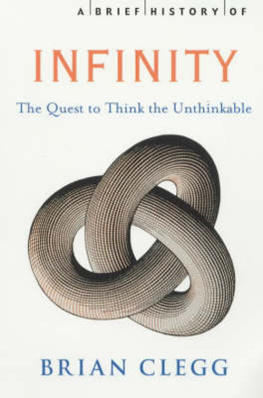

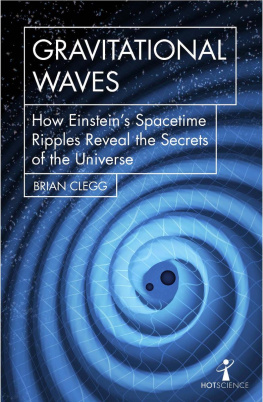
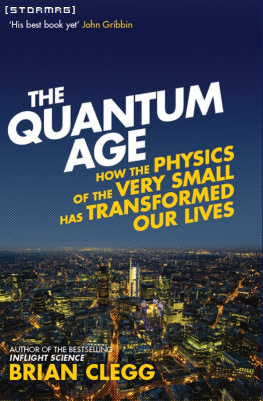
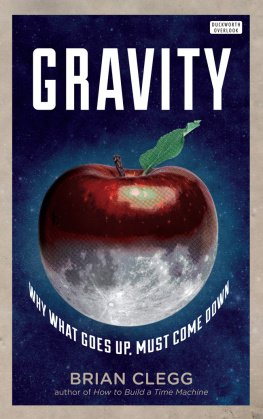
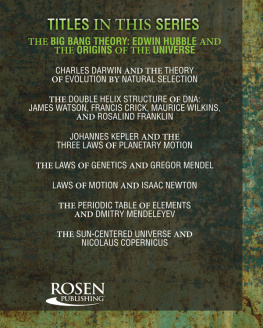
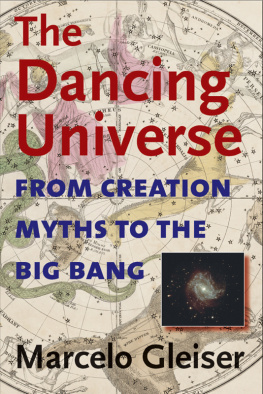
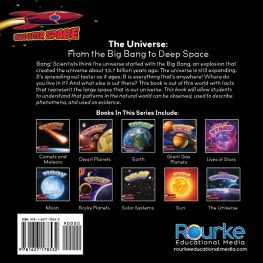

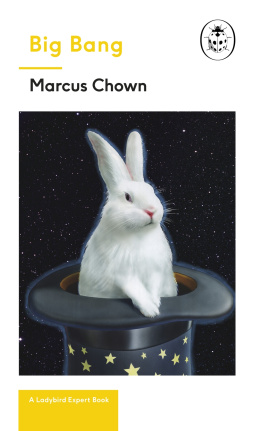
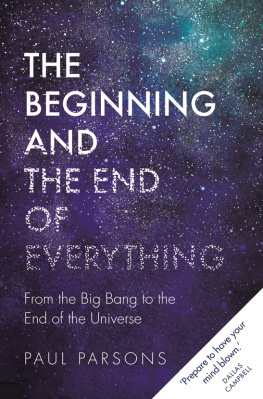
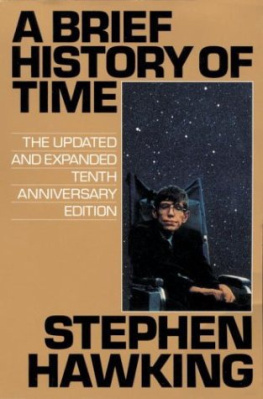
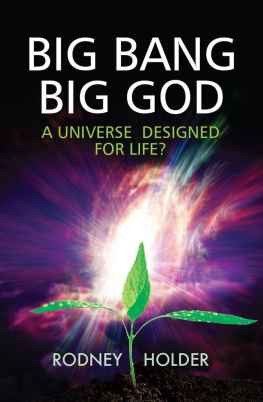
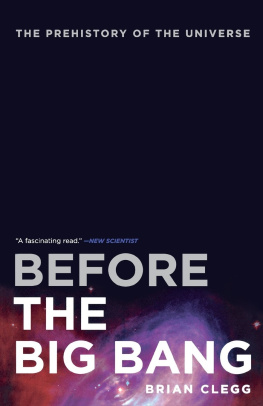
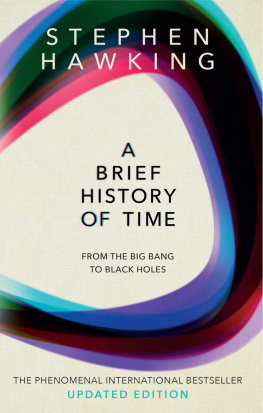
 NEW YORK
NEW YORK